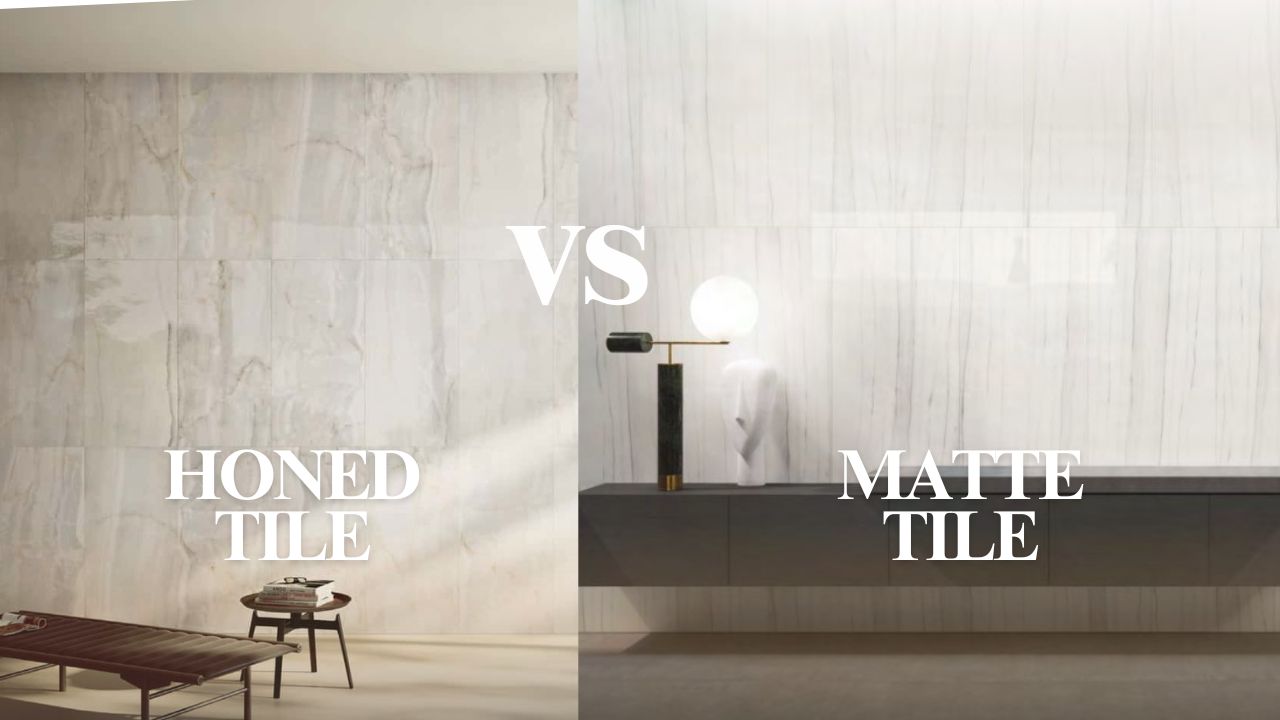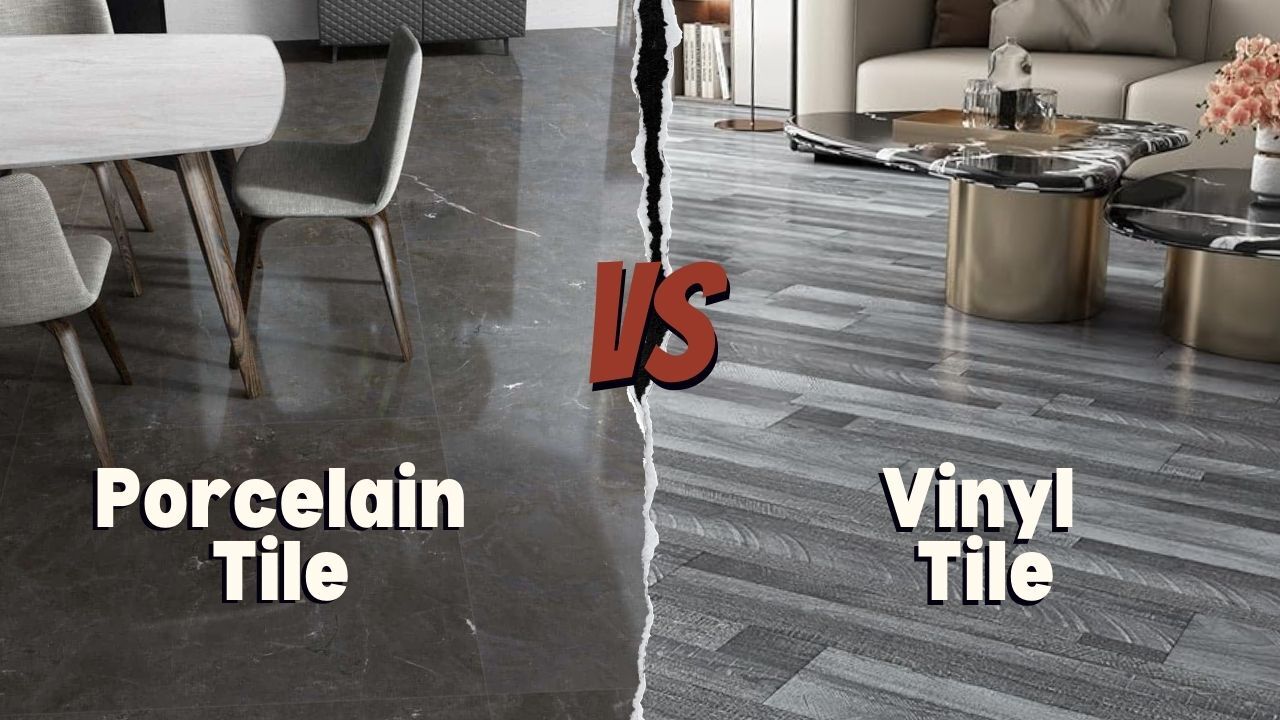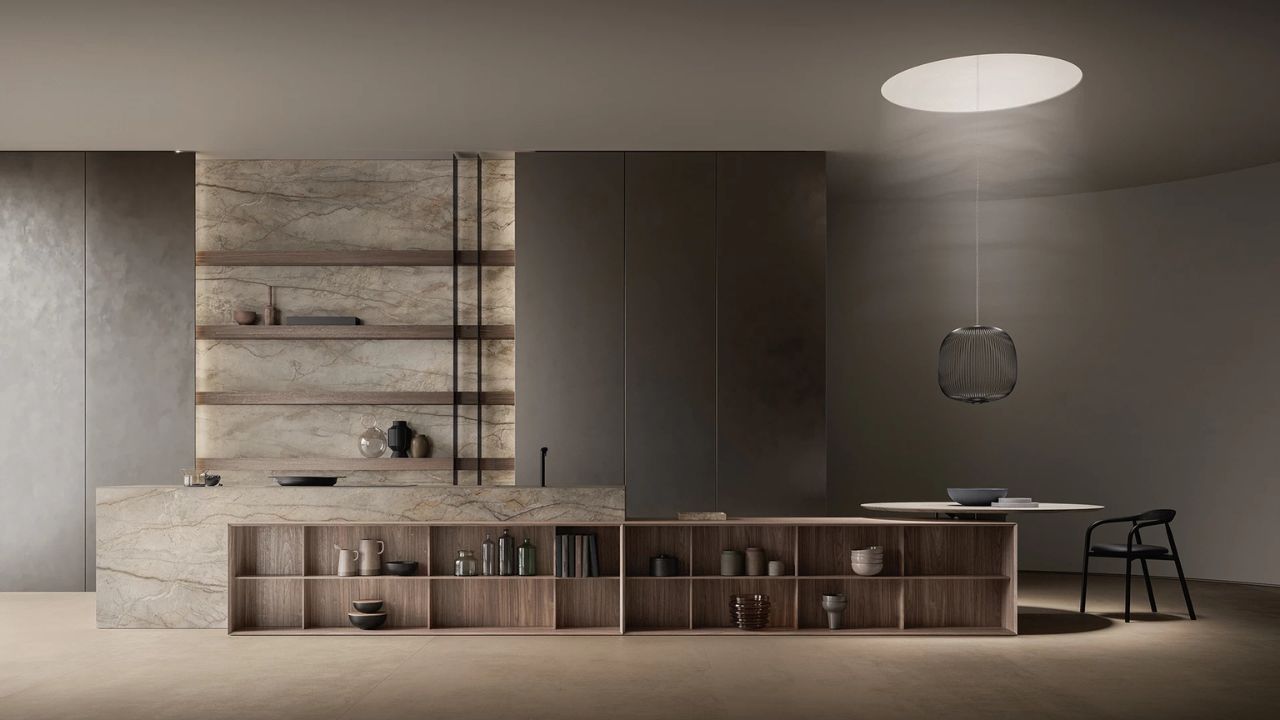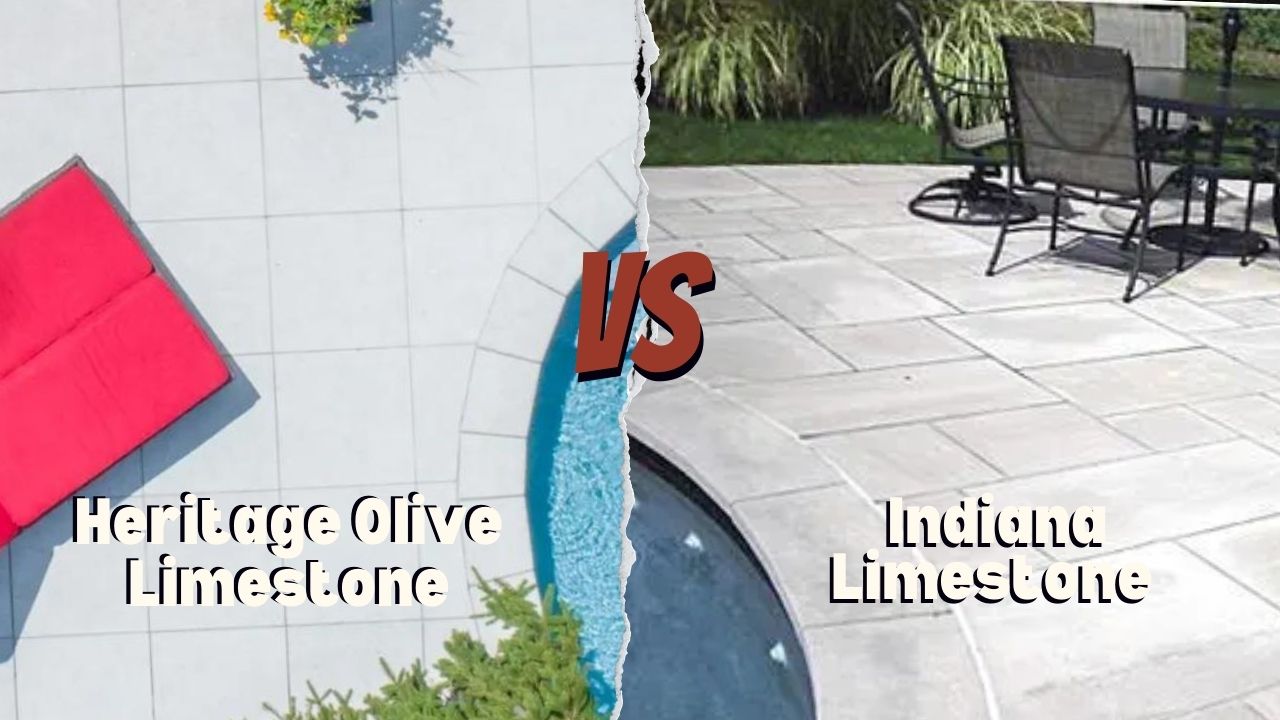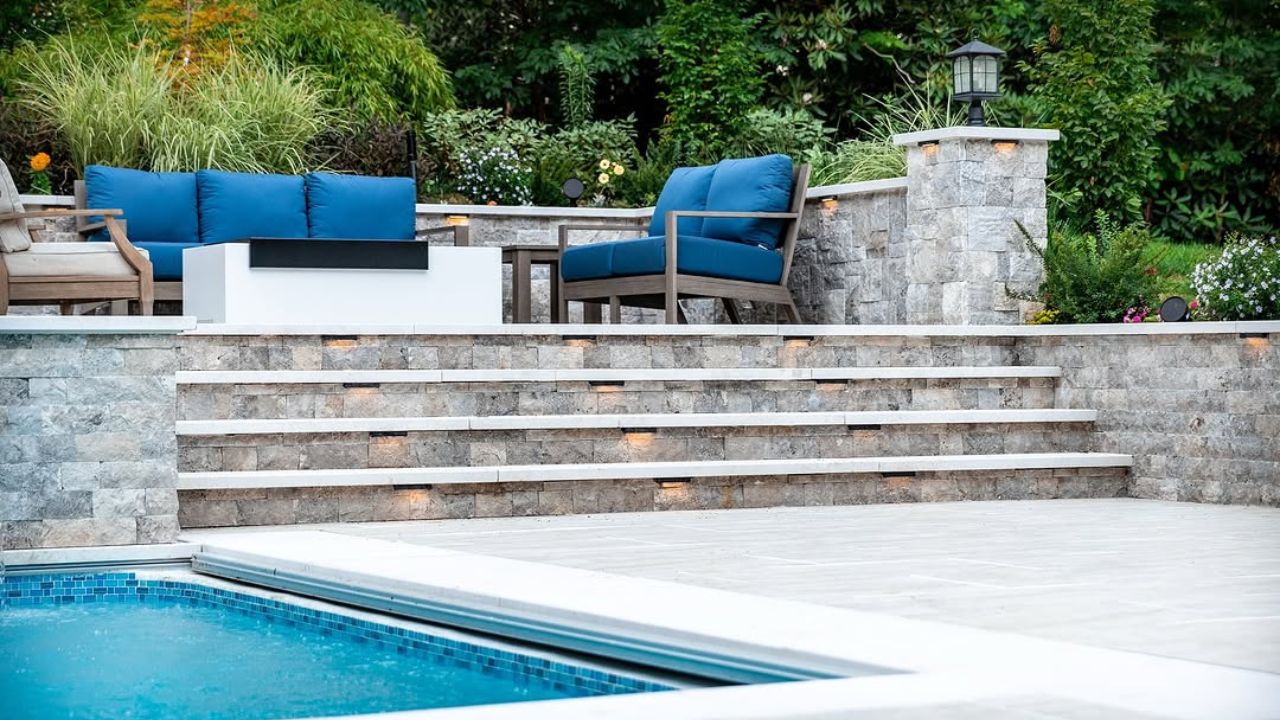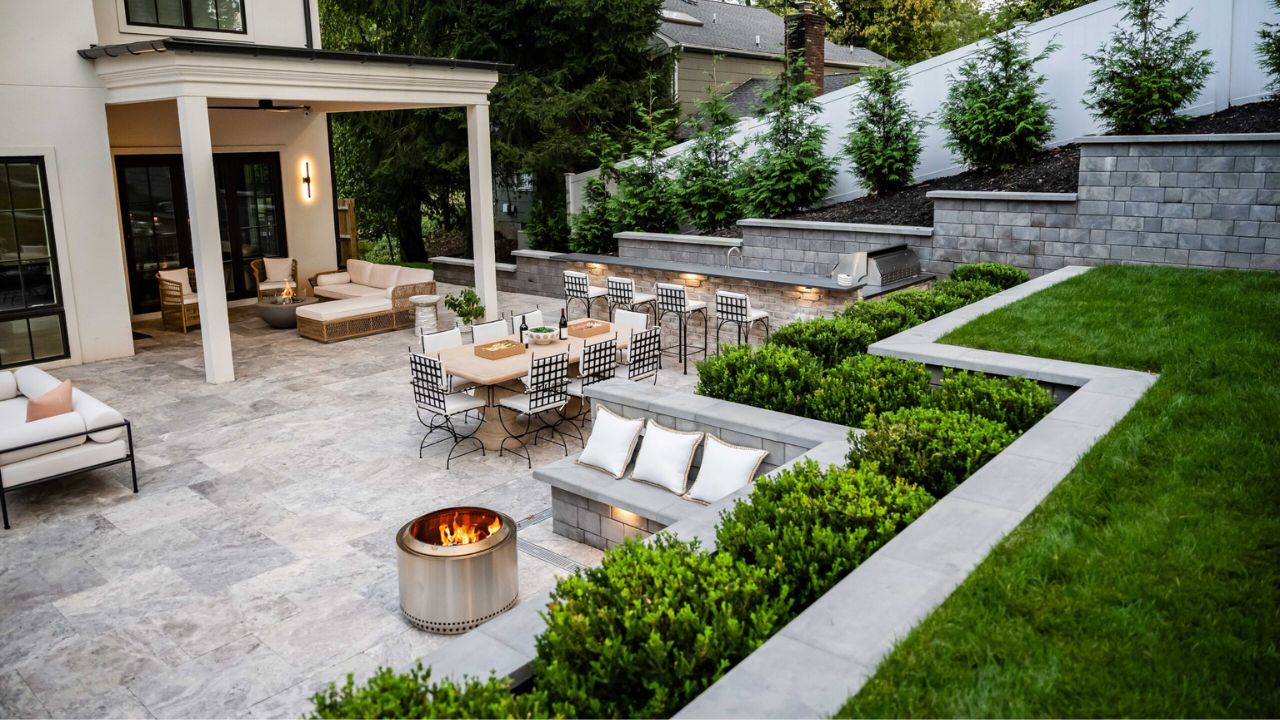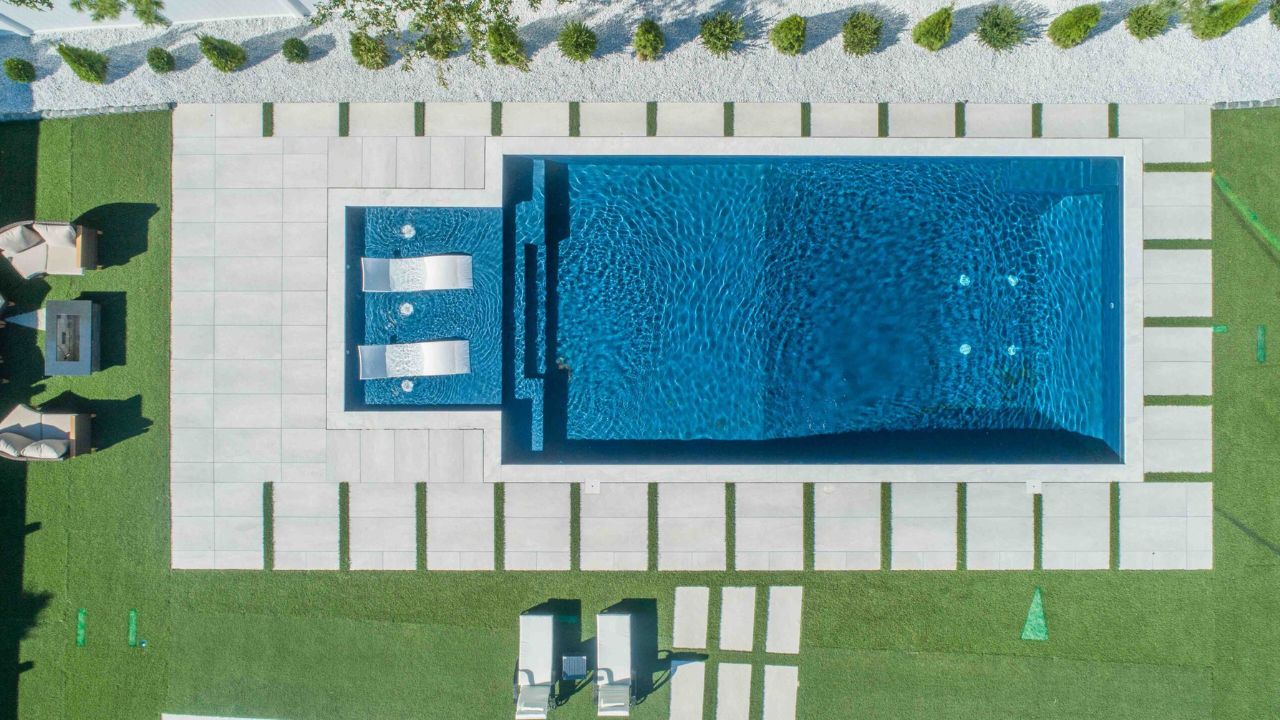Whether you are buying tile for the first time or managing a commercial building project, it is possible that you may have to think about the difference between honed vs matte tile. Though tiles come in different finishes, choosing between honed vs matte tile often becomes overwhelming. From porcelain tile to natural stone tile, we will guide you about both honed and matte finishes so you can make an informed decision.
Honed vs Matte Tile Comparison
To get the best idea about honed and matte finishes, take a look at the table below.
| Feature | Honed Tile | Matte Tile |
| Finish | Smooth, flat, low-sheen | Textured or velvety, completely non-shiny |
| Slip resistance | Moderate | High |
| Cleaning | Easier to clean | Requires deeper cleaning in textured spots |
| Stain resistance | Good (especially porcelain) | Very good |
| Ideal for | Indoors, backsplashes, and shower walls | Bathrooms, floors, and outdoor patios |
| Appearance | Modern, refined | Natural, rustic, soft |
| Maintenance | Needs sealing (for stone) | Low-maintenance |
| Reflectivity | Slightly reflective | Not reflective |
| Traction when wet | Better than polished, less than matte | Excellent |
In this table, you can understand the difference between the two finishes from applications to functionality, and aesthetics. Even though they both have non-reflective surfaces but they are distinctly different in all ways.
What Is A Honed Tile Finish?
The honed finish is obtained by grinding the surface of a stone or porcelain tile till it gets a smooth, flat surface with little to no shine. The polish is not done on the level that it becomes glossy, but it still has that smooth-to-touch feeling. The process maintains the natural integrity of the tile while reducing slipperiness compared to high-gloss finishes.
In porcelain and natural stone tile collections, honed tiles offer a luxurious, soft matte feel that balances aesthetics and practicality.

What is a matte tile finish?
Matte tiles feature a non-reflective and slightly textured or velvety surface. A matte finish is usually created while firing the tiles. This is why this finish is ideal for areas prone to wet, heavy traffic or visibility concerns. Matte tiles are often preferred in:
- Rustic, industrial, or earthy design schemes
- Bathrooms or laundry areas where traction matters
- Commercial kitchens or shared spaces

Finish
The finish difference between Honed Vs Matte Tile is prominent. Though they both have a non-reflective finish:
- Honed tiles have a smooth, flat surface with a low shine and satin-like finish. They’re soft to the touch and give a clean, elegant look without being glossy. This makes them great for modern interiors.
- Matte tiles feature a more textured or velvety surface that absorbs light and feels more natural. They are completely non-reflective, feel visually calm, and grip the surface.
Slip Resistance
Slip resistance is another major difference between honed vs matte tiles.
- Honed tiles offer moderate slip resistance. However, it is not as good as matte tile, but still better than polished tiles. This makes them an ideal choice for indoor hallways and rooms.
- Matte tiles, on the other hand, offer the best slip resistance because of their non-glossy and textured surface. This is why they work best in the outdoors, pool areas, and showers.
Cleaning Convenience
Cleaning tiles is also different, as
- Honed tiles have a smoother surface, which is easy to wipe. This makes the cleaning easier. You can clean dust, soap scum, and spills quickly with standard tile cleaners.
- Matte tiles, especially those with a textured surface, require much deeper or more frequent cleaning. They can trap grime in their micro-textures, requiring a brush or specialized cleaner for thorough maintenance.
Stain Resistance
Both surfaces resist stains differently.
- Matte tiles, especially the matte porcelain tiles, offer great stain resistance due to their dense surface and glaze.
- Honed tiles are generally good is resisting stains, but their natural stone variants may require sealing as the textured and porous surface may absorb spills faster.
Application Differences
Both of these tiles are suited for different applications, such as:
- Honed tiles work well in indoor environments where they offer visual clarity and a clean look. They are ideal for:
- Kitchen backsplashes
- Living room floors
- Shower walls
- Feature walls in dry areas
Honed tiles offer a refined, contemporary finish that pairs well with minimalist or transitional styles.

- Matte tiles offer a grippy and slip-resistant surface, which is why they work great in outdoor applications like:
- Bathrooms and wet rooms
- Outdoor patios and walkways
- Laundry areas
- Mudrooms or commercial restrooms
Make sure to seal the outdoor matte tiles if they are from the natural stone family.
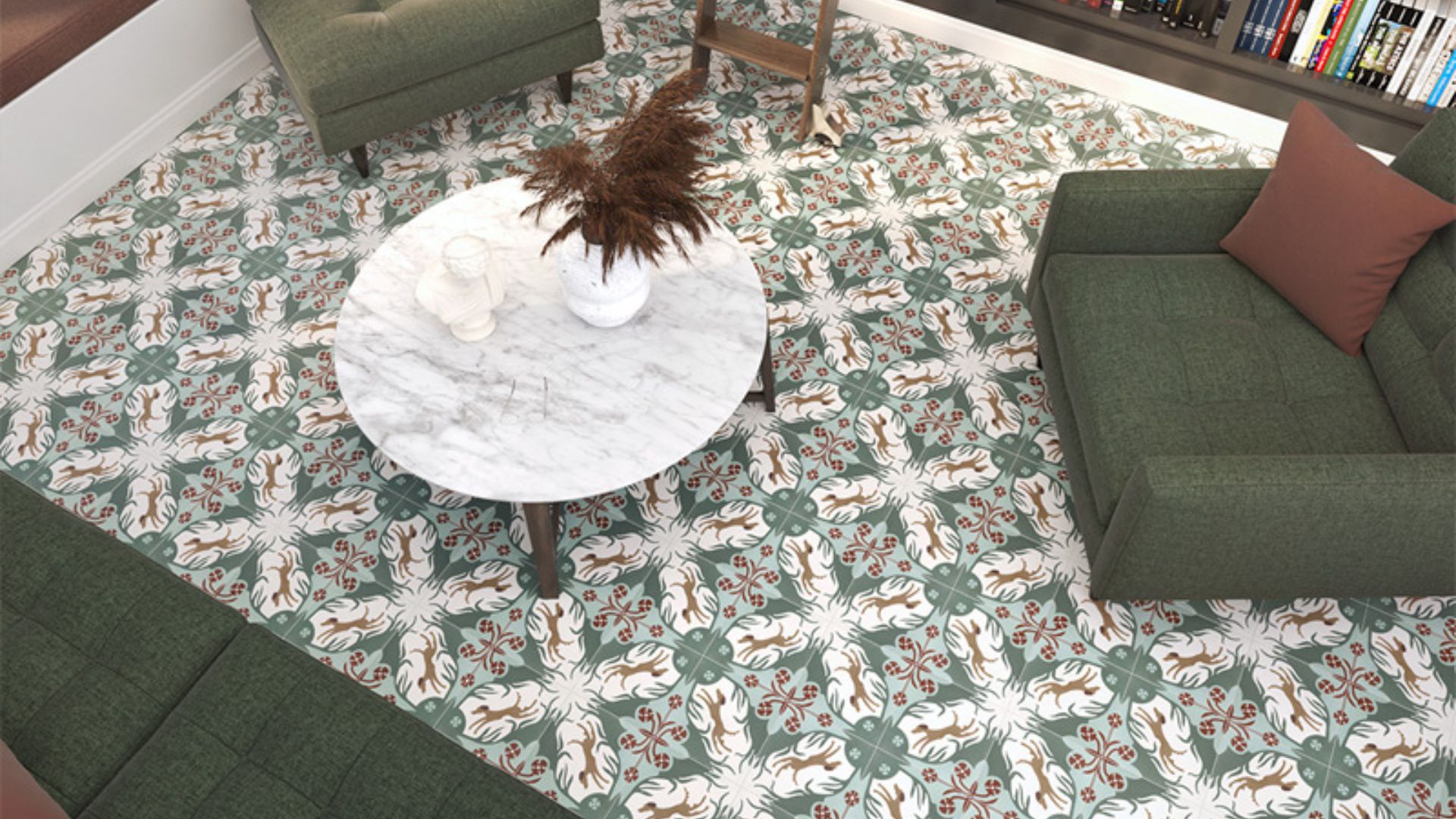
Appearance
The appearance between honed vs matte tile is also different, where:
- Honed tile features a modern, refined appearance. The surface looks smooth but not glossy like a polished one.
- Matte tile has a more natural, understated beauty. Their non-reflective surface created an organic and warm look.
Maintenance
The maintenance requirements of both tiles are also different.
- Honed tiles, especially those made from natural stone, may require periodic sealing to protect against stains and moisture absorption. The smooth surface itself is easy to clean, but sealing is key to longevity.
- Matte tiles, particularly types of porcelain tile finishes, are considered low-maintenance. No sealing is required, and the surface resists scratches, staining, and daily wear well, even under heavy use.
Light Reflection
The light reflection in honed vs matte tile is much different.
- Honed tiles reflect a small amount of light, which helps in making rooms look a little brighter and open. This is especially useful in slightly brighter and more open spaces, especially in spaces with limited natural light.
- Matte tiles are designed to be non-reflective. They absorb light, creating a subtle, moody atmosphere that works well with soft lighting or natural materials.
Performance Under Wet
Honed vs matte tiles work slightly differently when wet:
- Honed tiles are better than polished tiles. But they are less slip-resistant than matte finishes when wet. If using honed stone in wet zones, it’s recommended to add texture or apply a slip-resistant coating.
- Matte tiles offer excellent traction even when wet. These are the best tiles for shower walls, pool areas, or outdoor paths exposed to rain.
How are Honed Vs Matte Tile Different In Performance?
When it comes to the performance factor between honed vs matte tile, they are also different in performance. They also have different cleaning and maintenance requirements, alongside the comfort underfoot. Here’s how:
- Matte tiles offer better slip resistance and more grip.
- A honed finish is smoother and easier to clean with just quicker to wipe down.
- Matte tiles can hide micro-scratches better.
- Honed natural stone may absorb more water without sealing.
FAQs About Honed Vs Matte Tile
Have any questions about honed and matte tile? Read below to find more information.
Is matte tile good for shower floors?
Yes. Matte tiles offer better grip and traction when wet. This makes them a good choice for shower floors.
Do honed tiles scratch easily?
No. However, depends on the material. Porcelain honed tiles handle scratches better, but natural stone may require sealing to resist scratches.
Are honed tiles slippery?
Yes. They are less slippery than polished tiles but more slippery than matte tiles.
Can I use matte tiles on walls?
Absolutely. Matte tiles add a velvety, soft appearance to walls and are ideal for rustic, industrial, or minimalist aesthetics.
Do matte tiles need sealing?
Porcelain matte tiles do not need sealing. Natural stone matte tiles might, depending on porosity.
Bottom Line
When it comes to honed vs matte tiles, it is possible to feel overwhelmed due to their almost similar surface. Though they both look similar with slight differences but they are vastly different from each other. No surface is better than the other. It depends on your usage and requirements; this will help you choose the right surface.
Need help choosing the right tile finish? Contact our tile experts for a free consultation.

